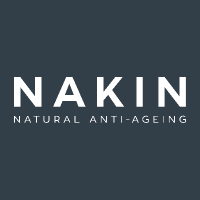Can Skincare Trials Be Trusted?

This is a question that we often ask ourselves at Nakin, as we read about so many skincare trials from different brands, and sometimes the promises do not add up to the product. But when we take a closer look, we see that the questions asked in these trials are quite leading, and we also know that if any type of ingredient is applied to the face and neck, it is likely to improve things like perceived moisture levels, ease lines and help skin to glow.
If we apply and massage in an ingredient such as coconut oil to the face and neck, that is just a basic version from a supermarket, your skin will look a lot better than before. This is because coconut oil is filled with lots of gorgeous omegas, as well as vitamins and minerals, so it will improve the way that skin feels, plus the act of massaging it into the skin will boost circulation and give skin a gorgeous healthy glow. If you are then asked a question ‘does your skin feel more hydrated’ you would answer yes. Or ‘does your skin look more youthful’, again the answer would be yes. But it would not really give a true indication of the long-term benefits and ability. In fact, coconut oil is an ingredient that should always be avoided on the face, as it is extremely greasy and pore clogging.
Why Skincare Trials Need to Be Looked at With Care
It is no secret that the skincare industry is a multi-billion-dollar business, with new products constantly being introduced and marketed as the next miracle solution for perfect skin. But have you ever wondered how these products are tested and proven to be effective? The truth is, most of them rely on trials conducted by the companies themselves, which can raise concerns about the credibility and reliability of their claims.
Skincare trials are often not as rigorous or unbiased as we would like to believe. Companies have a vested interest in proving the effectiveness of their products, and may manipulate trial conditions to produce more favourable results. They may also selectively publish only positive findings, while burying any negative outcomes. This means that the information presented by the company may not accurately reflect how the product will perform in real-world use.
Furthermore, many skincare trials are conducted on a small sample size and for a brief period of time. This makes it difficult to determine the long-term effects or potential side effects of a product. We all will have seen before and after shots where the lighting looks different, and still the results are barely noticeable.
Another issue with relying on skincare trials is that they often use ideal conditions and perfect test subjects, which may not reflect the reality for most consumers. Factors like diet, lifestyle, and environmental influences can greatly impact how a product works on an individual's skin. This means that a product that may work well in a controlled trial setting, may not have the same effects in real-life situations.
So, while skincare trials may provide some insight into a product's potential effectiveness, they cannot be fully trusted as the sole basis for choosing a skincare product. It is important to do your own research and consider factors beyond just trial results when making decisions about your skincare routine. Look for products with natural and high-quality ingredients like our Nakin Skincare range, backed by reputable certifications and awards. And don't be afraid to reach out to friends, family, or online communities for honest reviews and recommendations. Ultimately, finding the right skincare routine is a personal journey that requires a combination of trial and error, along with careful consideration of all available information. Remember, your skin is unique and what works for others may not necessarily work for you.


Leave a comment